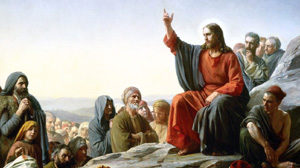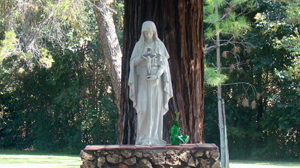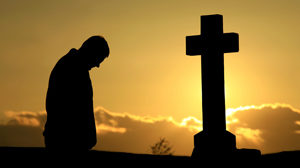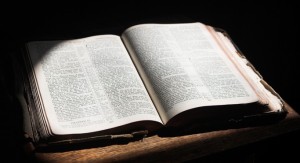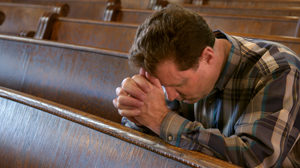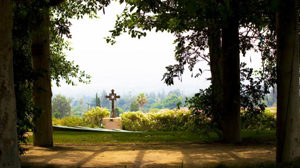Deuteronomy 26:16-19
Matthew 5:43-48
Reflection:
In our first reading from Deuteronomy, Moses gives to the people the terms of God’s covenant with them: “Today you are making this agreement with the Lord: he is to be your God and you are to walk in his ways and observe his statutes, commandments and decrees, and to hearken to his voice.” Perhaps one way to look at our baptismal commitment is to see it as a covenant between God and us in Jesus Christ.
We can easily see God’s commitment to us, but it is not always easy to “hearken” to Jesus’ voice. Today’s Gospel is a case in point. Jesus says to the crowds, “You have heard that it was said, ‘You shall love your neighbor and hate your enemy.’ But I say to you, love your enemies, and pray for those who persecute you.”
Would we be so willing to enter into a covenant if part of the contract was to love our enemies? In our country and in so many parts of the world, treating others as enemies seems to be the norm rather than the exception. And yet Jesus calls us to go beyond what is considered acceptable, and if necessary, go against the prevailing winds of society.
We need to remember that God has gone beyond what is considered acceptable with us. As Jesus says in our Gospel reading: “… he makes his sun rise on the bad and the good, and causes the rain to fall on the just and the unjust.” God does not give up on His own! He is not satisfied with relegating them to categories like “worthless,” or “enemy.” God is faithful in loving His children, whether they turn their backs on Him or not. We are called to love as God loves, as He has given His love and grace to us in Jesus Christ, and continues to guide us through the Holy Spirit.
May we go beyond worldly wisdom and convention. May we take the risk to enter into a covenant with God in Jesus Christ that commands us to love always.
Fr. Phil Paxton, C.P., is the local superior at St. Paul of the Cross Passionist Community in Detroit, Michigan.


